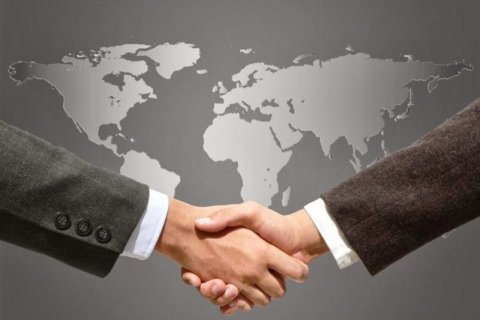On the international arena, Russian diplomacy solves a large number of high-priority issues, among which are: fulfillment of the country’s foreign policy; strengthening of political, economic, and cultural relationships with foreign countries; developing strategic partnerships with the European Union, and others; and all of this while advocating national interests of Russia. The Director of the SUSU Institute of Linguistics and International Communications Elena Yaroslavova tells us about training of the future diplomats offered by our university.
– How are future diplomats trained at South Ural State University; how is the academic process built, and is there anything unique about it?
– We have been training the future international specialists at SUSU for more than 15 years now. Once the “International Relations” degree program was open, we relied on rich experience of the Moscow State Institute of International Relations, the major university for diplomat education.
The academic process is built in such a way that students obtain complex professional training: they study theory and history of diplomacy, diplomatic and business etiquette, political culture, and other essential disciplines. One important aspect for future international specialists is intensive language training, meanwhile the students have an opportunity to study several international languages (English, German, French, Spanish, Chinese).
It should be noted that ILIC students are immediately immersed in an international environment, since Russian students study alongside international students from China, Iraq, Afghanistan, Nigeria, Kazakhstan, Turkmenistan, Uzbekistan, Tajikistan, Kyrgyzstan, and more. Every year students have a chance to complete internships in China, Slovakia, Columbia, and a number of other countries around the world.
– What qualities must students have to work as diplomats, and how does the university help develop these qualities in the academic process?
– International specialists must be able to understand Russia’s foreign policy line, have a high level of political and civil commitment in advocating the national interests of our country; have strategic vision of the development of events, and be able to accurately predict tendencies in situations; be able to express their thoughts in written and oral form intelligently, clearly and convincingly. They must be insightful, be able to critically evaluate information they obtain, and draw correct conclusions on this basis. The defining characteristics are a high level of culture and education, ability to avoid conflicts that could damage their reputation, and ability to avoid public statements on the dealings of state bodies and their leaders. In other words, they are the state’s ideological reserve.
– Are there any extracurricular events held that help form students’ professional skills: business games, practical lessons, master classes?
– The Department’s extracurricular activities allow students to immerse themselves in an environment of real professional communication. The Department constantly holds various interactive events like the annual international student research forum “South Ural Model of SCO”, traditional student conferences on important aspects of international communication “Global Issues of Modern Society”, round tables, discussions, and debates on important issues in international relations and regional studies (terrorism, illegal immigration, and drug trafficking).
In addition, students take part in international, regional, and university Olympiads, in video calls with international universities (USA, Germany, the Netherlands), and complete academic training and internships in order to obtain the primary professional skills at businesses and organizations.
– Please, tell us about SUSU graduates who are now working in diplomatic communications.
– ILIC is proud of the graduates of the Department of International Relations and Regional Studies. Some of them continue their education under Masters’ programs in Russia and abroad (USA, England, Germany). Others work in international project groups, the Foreign Intelligence Service of the Russian Federation, the Federal Security Department of the Russian Federation, or are heads of departments for international economic activity in large businesses and organizations.
Many of the Department’s graduates are leading specialists in such organizations as the Russian Chamber of Commerce and Industry (Moscow), the Ministry of Economic Development for the Chelyabinsk Region, and the Department of Energy Safety of the Ministry of Foreign Affairs of the Russian Federation.
In addition, our graduates work as specialists in the city and regional administrations, and as advising translators, and foreign language teachers.




